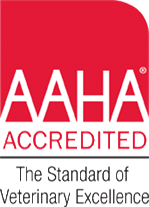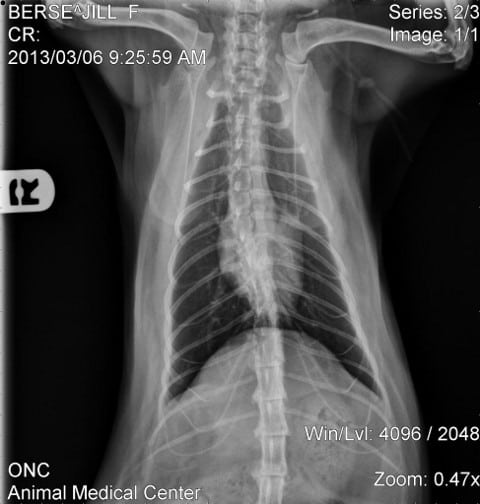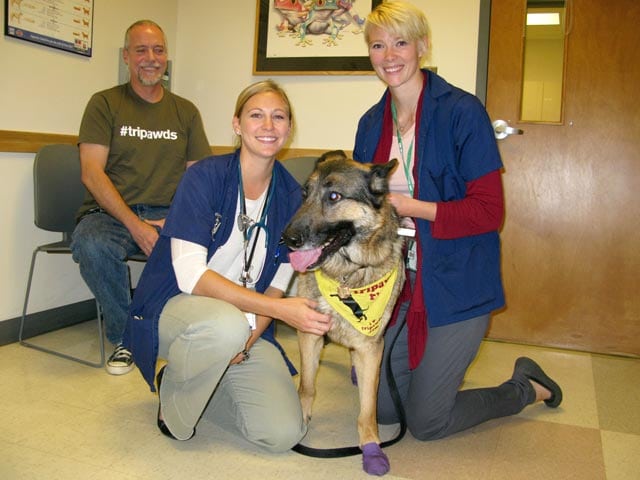Is this logo proudly displayed in your vet’s office? If not, ask your vet why it isn’t.
 Why does this logo matter? Because vet practices that proudly display the American Animal Hospital Association (AAHA) logo are following the very best practices in veterinary care and hospital management for their patients.
Why does this logo matter? Because vet practices that proudly display the American Animal Hospital Association (AAHA) logo are following the very best practices in veterinary care and hospital management for their patients.
AAHA is the only organization that accredits veterinary hospitals — both general and specialty practices — in the United States and Canada.
Find out if your vet clinic is AAHA-certified,
or locate a AAHA clinic here.
Why AAHA-Certified Vets are the Very Best
In our non-vet opinion, choosing an AAHA-certified clinic just might make or break recovery from a major operation like amputation. Through the years this community has occasionally experienced tragic outcomes to members’ amputation surgeries – from life-ending blood clots to MRSA infections to horrific, painful post-op care – and we can’t help but wonder if those members’ clinics were AAHA-certified. Could that have made a difference?
Did you know: veterinary practice accreditation is entirely voluntary! Human hospitals must meet accreditation standards set by certain agencies in order to practice medicine, but not vet clinics. Is yours AAHA-certified?
You would think that all vet clinics would want to be AAHA-accredited, but the reality is that only about 12% of clinics are. Technically, any licensed vet can run a practice without meeting any standards set by an overseeing veterinary agency like AAHA.
The Highest Levels of Care

By voluntarily meeting a stringent set of 900 medical care standards designed by AAHA, these exceptional practices are providing the highest levels of care when it comes to:
- emergency services
- pain management
- contagious diseases
- surgery and anesthesia
- radiology services
- pathology services
- nursing care
- diagnostic and pharmacy
- dentistry
- examination facilities
- pet medical records
- medical library
- housekeeping and maintenance
Meeting these standards is challenging and requires serious dedication by the entire practice. Here’s how it works, according to AAHA:
a veterinary practice usually spends several weeks or months examining and fine-tuning its systems, processes, and protocols (procedures) to be sure every aspect meets AAHA’s standards of quality.
Often the whole practice team becomes involved, which builds collaboration across the entire clinic — an important factor in quality pet care.
When the practice is ready, AAHA sends consultants — trained professionals with veterinary backgrounds — to conduct an on-site evaluation.
Practices are awarded points for each standard they meet, and they must amass a certain score in order to pass the evaluation. Accreditation is by no means guaranteed. . .
To maintain accredited status, clinics must be re-evaluated every three years. This ensures that every AAHA-accredited practice represents the most current thinking about what constitutes the best health and medical care for pets.

Don’t you want to work with a clinic that takes their role seriously enough to voluntarily become AAHA-certified? We do!
Nearly every vet procedure has risks. If you want to minimize those risks for the sake of your beloved cats and dogs, choosing a AAHA-certified practice is the best way to do it in our opinion.
Find out if your vet clinic is AAHA-certified,
or locate a AAHA clinic here.
Learn more about why AAHA accreditation is important for you and your pet.
Recommended Reading:
AAHA: How to Choose the Right Veterinarian
Please be aware that we are not veterinarians. The information presented here is not meant to be construed as medical advice or guidance, nor should it be substituted for professional veterinary assistance. Always discuss any remedies and treatments you wish to pursue with your veterinarian.
It’s good to know that there are different levels of vets that can respond to different types of emergencies. Most people like myself assume that all vets are the same and there is no specialization. I just recently bough an exotic bird and was taking it to my normal vet and he send me to a different one that specializes in exotic animals. Thanks for posting this article, it helped me further understand my vet’s decision.
I didn’t know there are accreditation’s for different vets. I wonder if the animal hospital I go to is accredited. Next time I go, I will be sure to ask them!